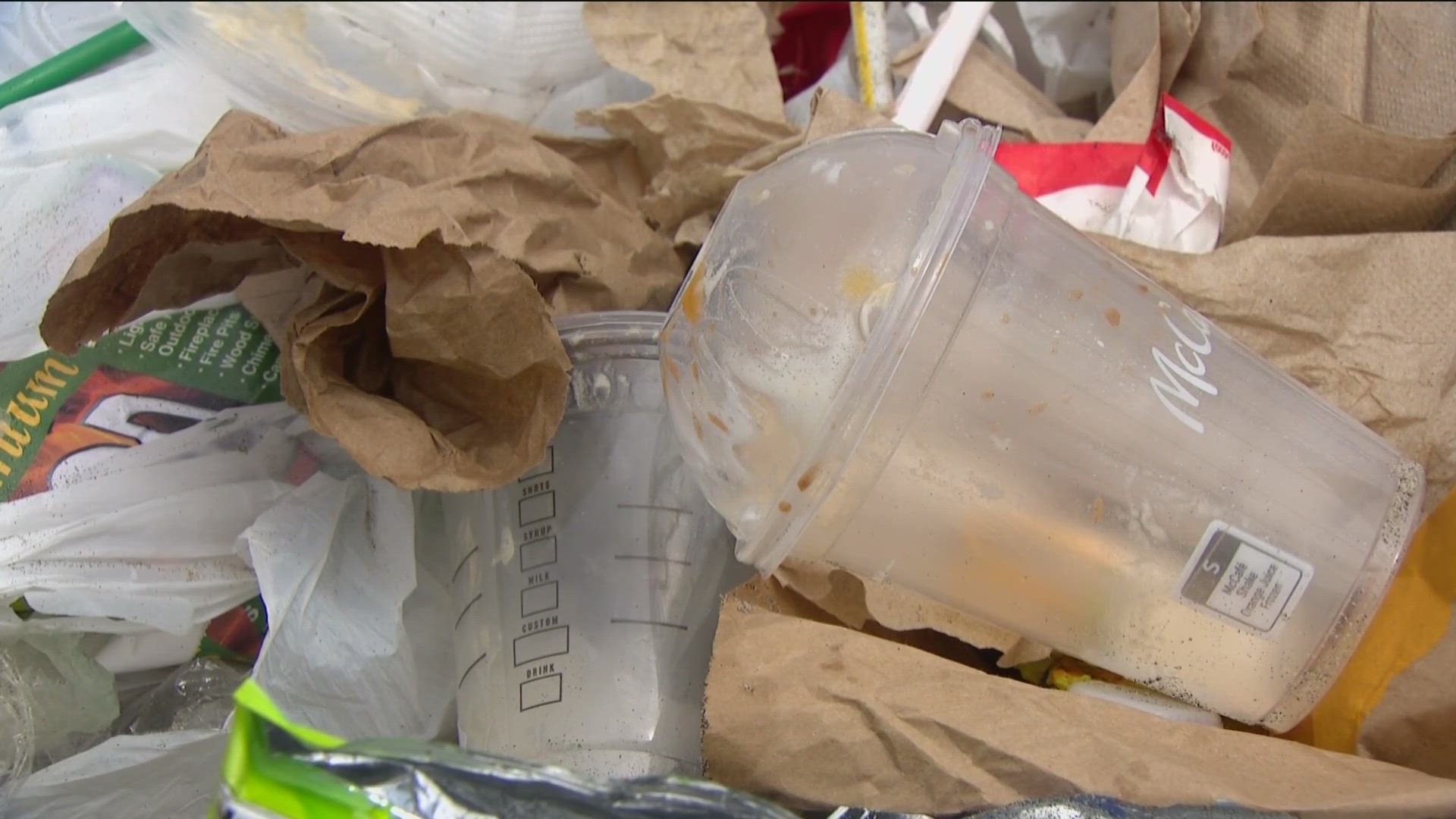SAN DIEGO — Summertime has us spending more time outdoors, and that's leading to a big accumulation of trash across our county. Whether it's the parks, whether it's a hiking trail, or just at a local beach, Project Clean Water, a San Diego County-wide initiative to protect our water quality, wants you to have fun in the Sun and keep it eco-friendly.
"A lot of what we see tends to be, you know, like I said these Summer holidays. We're out there. We are having these big family events or neighborhood events and inevitably, things like food wrappers, drinking cups, plastic water bottles, those types of things are very commonly left behind," said Chelsea McGimpsey with Project Clean Water.
Project Clean Water wants to remind you of the importance of proper trash disposal this Summer with their 'Trash Free Starts With Me' campaign.
Did you know the Fourth of July is considered the trashiest day of the year? With Labor Day around the corner, we have to remember to do our part to keep our county clean.
"This is really something that all of us have a responsibility to do. Trash in the environment like this is called a non-point source pollution. It's coming from everywhere, which means we are all responsible," said McGimpsey.
Please remember just because you aren't at the beach doesn't mean your trash won't make it there. The top trash items traveling through our waterways and littering our environment are called 'commuter trash'. These are items thrown out of your cars or found at parks and along hiking trails. They include fast food wrappers, plastic water bottles and plastic wrappers. The negative impacts of these plastic waste items are not only harmful to our environment.
"There is a lot of research right now showing that plastic pollution as it degrades in our environment releases a hormone chemical similar to estrogen that can impact your own hormonal regulations," explained McGimpsey.
The top trash items also include plastic caps on water bottles and cigarette butts. With so much single-use plastic waste, the verbiage is even changing when it comes to recycling it.
"We've all heard reduce, reuse, recycle. There is a new saying now that there are so many single-use plastics. It's reduce, reuse, refuse, recycle because single-use plastics are these most common trash item that we see," said McGimpsey.
McGimpsey suggests disposing of your waste in a trash bin with a lid on it in at parks and beaches. This will prevent seagulls and the wind from carrying it away. On the trails, please don't forget to pack out what you pack in.
Here are a few reusable recommendations as well.
"A really easy one is just reusable water bottles. You know you can get a metal water bottle or an insulated one or you could use a plastic one if you wanted as long as it's sturdy and reusable. And then a lot of times, when we were going out for picnics with our families, we'll just carry all of the ingredients out in our plastic single-use grocery bags. Swap those out for a reusable bag," said McGimpsey.
But trash isn't the only harmful pollutant jeopardizing our wildlife. McGimpsey also suggests using reef-friendly sunscreen when protecting your skin.
"Tradition sunscreens contain chemicals that are harmful to corals that cause abnormal growth. It disrupts their gene regulations, and it's kind of a kin to a cancer in a human. And so, you want to find sunscreens that are mineral based and can sit on top of the skin. If you can find a sunscreen where the only ingredient is zinc oxide, that's a reef safe sunscreen," explained McGimpsey.
Let's keep the beach days, hikes and outdoor parties going strong this Summer! Just with less harmful impacts on us, and the place we call home.
WATCH RELATED: New campaign urges pet owners to help 'Keep San Diego Doody Free'

